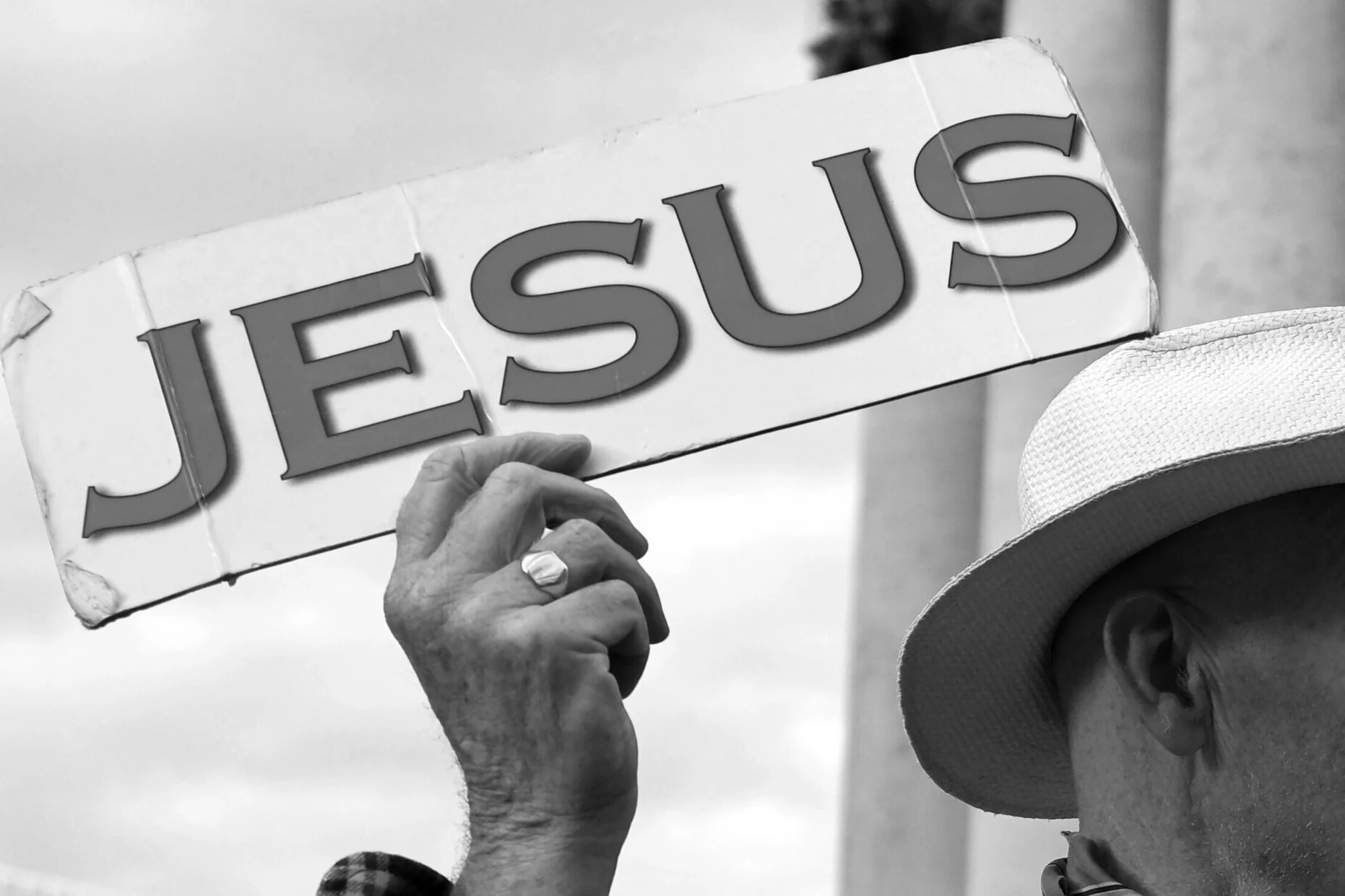One of the things we find the most offensive about the message of Jesus is that it calls us all sinners – every one of us, from Hitler to humanitarian heroes. ‘Sin’ is this big, ugly, dirty word because we don’t like to be told we’re wrong, that we aren’t good enough or strong enough or something enough to save ourselves.
You might say “I’m a good person. I don’t need Jesus to save me.” Well, it’s all a matter of whose standards you’re using. Yep, you probably are a decent person if you’re measuring against your own version of right and wrong, and there’s always someone in worse shape to compare yourself to, which feels good. But what if there’s a higher standard? And what if that standard is perfect?
According to the Bible, God is absolute perfection and next to him we have no hope of measuring up. In fact, we don't even understand what perfection is. It even describes our attempts at being good as like filthy rags to God. We’ve been tainted by sin (the rejection of God and his way of life), and we can’t clean it off. It’s far deeper than skin deep, like a cancer riddled through our bodies. Nobody is any better or any worse than anybody else. The results might seem like it, like the difference between a white lie and murder, but to God the wrong was turning our backs on him. And we’ve all done that.
The sickness
Sin is when we turn away from God. It's when we reject God’s way for our own way and demand our own version of right and wrong.
We sin when we give the place of God to anything or anyone else (including ourselves). Giving our highest adoration and trust to any thing or person other than God is a rebellion against a perfect relationship of Creator and created – and it always ends badly. Because sin excludes us from relationship with God (from the source of life itself) the outcome is always death.
Way back near the start of the Bible God told us some things he didn't want us to do – things like don't lie, don't murder, don't steal, don't cheat on your spouse. He didn't want us to do these things because they hurt us and cut us off from him. The fact that nobody could stay innocent of all of them was meant to show us that human nature was corrupted by sin when the first people defied God, and the only way we can be good enough is by trusting in God – not by our own efforts. The rules show us how much we need God, the source of all that is good.
The symptoms
The devastating effect of sin is separation from God. It cuts us off from his presence and corrupts our relationship with God, other people, and the environment.
Sin spills over into our relationships with other people. Instead of loving each other, we have become rivals who exploit and enslave. Since sin entered humanity, people have been using and abusing each other in ways God never wanted.
Another symptom of sin is the exploitation of the environment. Instead of looking after God’s creation, we have used it selfishly without care for the future.
It’s easy to see that we live in a broken and hurting world, and it’s also easy to see how a lot of it is caused by the stuff we do that is totally at odds with God’s character – that selfish, dishonest, greedy, abusive stuff. What’s harder to see or admit is that the big scale bad stuff we see out there in the world is actually inside us too. You might not have murdered anyone but you might have wished someone would hurt just a bit. The thought of the less than the best for the other person and the action have the same root – the heart sickness of sin that Jesus says we need to be saved from.
The cure
The only way to break free from sin's death grip is to turn to Jesus, the only one who is without sin yet who chose to take the full consequences of it in our place. We need to admit that our ways have been wrong, and we want God’s right ways instead. That’s called to repenting: turning back to God and away from our sin. If we do that, God says that we will be saved from the condemnation of our sin.
We are saved from sin so that we can be free from sin. As we continue to belong to Jesus and trust in him, he will continue to set us free from sin – but we have to want to resist it, or we’ll keep choosing to live in captivity. Sometimes we get tricked into thinking that our own ways will offer us fulfilment, when actually every pleasure apart from God is empty.
Claud C. Kluge says, “I have been saved from the penalty of sin. I am being saved from the power of sin. I will be saved from the presence of sin.” We won’t be completely free from the presence of sin in this life. But we are promised that one day what is corrupt and broken will be removed and only what is good will take its place.
If we put our trust in Jesus, we can be happy that sin has lost the ultimate battle for us, and that as we learn to follow Jesus he will lead us into freedom from sin, starting now.
In a nutshell, sin = defiance of God = broken people = a broken world. The only antidote for our soul-deep brokeness is to turn back to God and trust him to heal us. And the only way to get back to God is through Jesus. The good news is that he’s asking you to do exactly that, right now.










